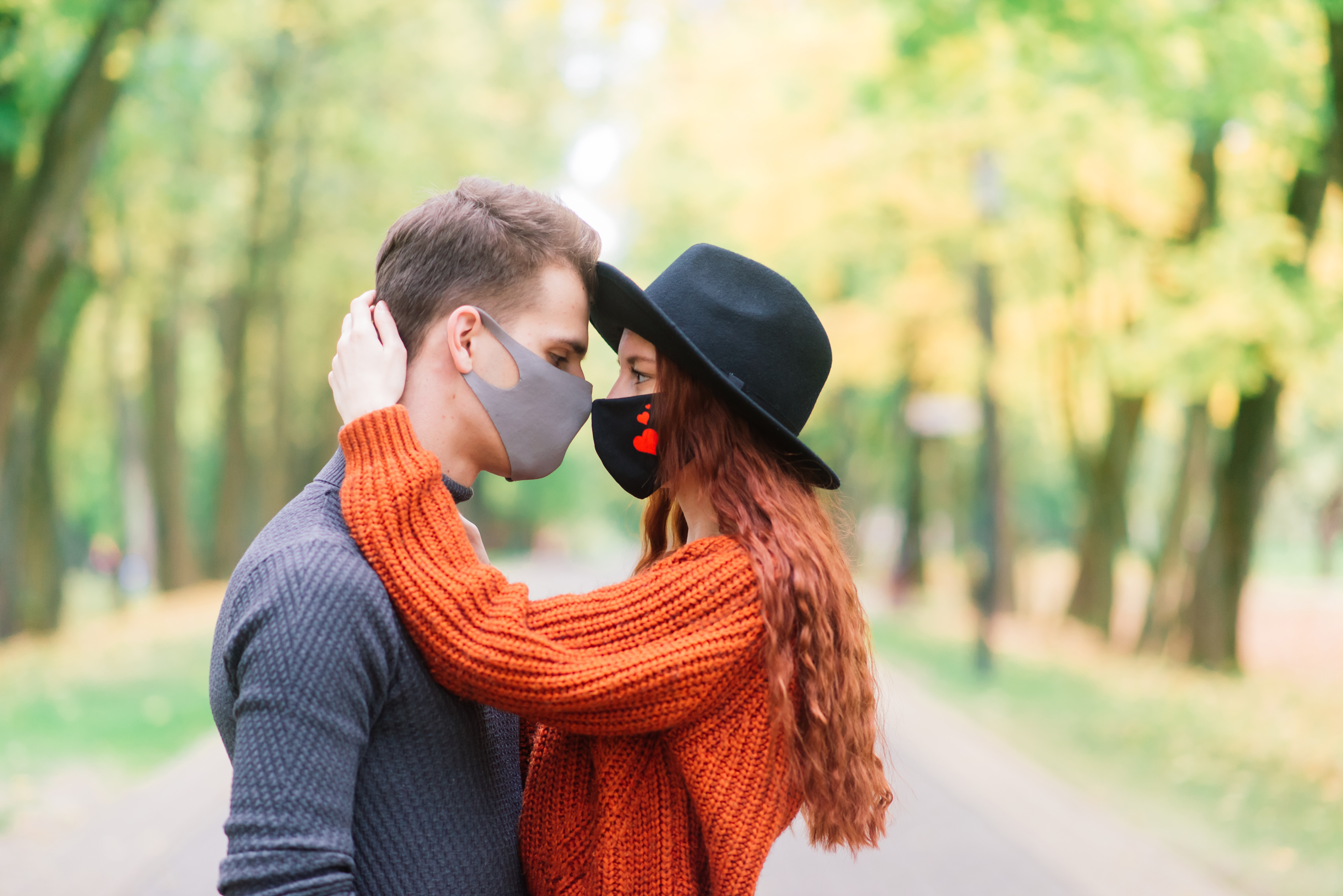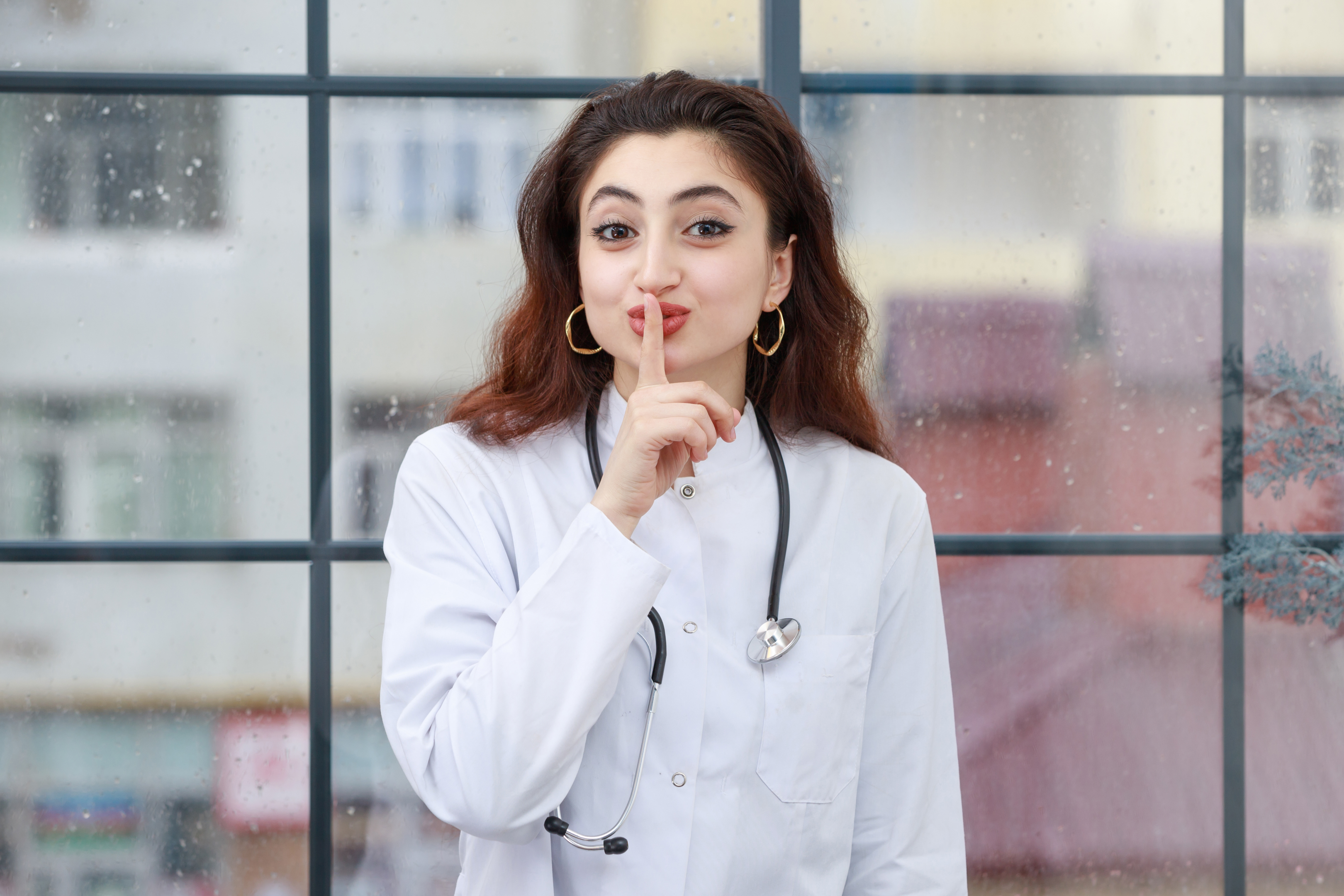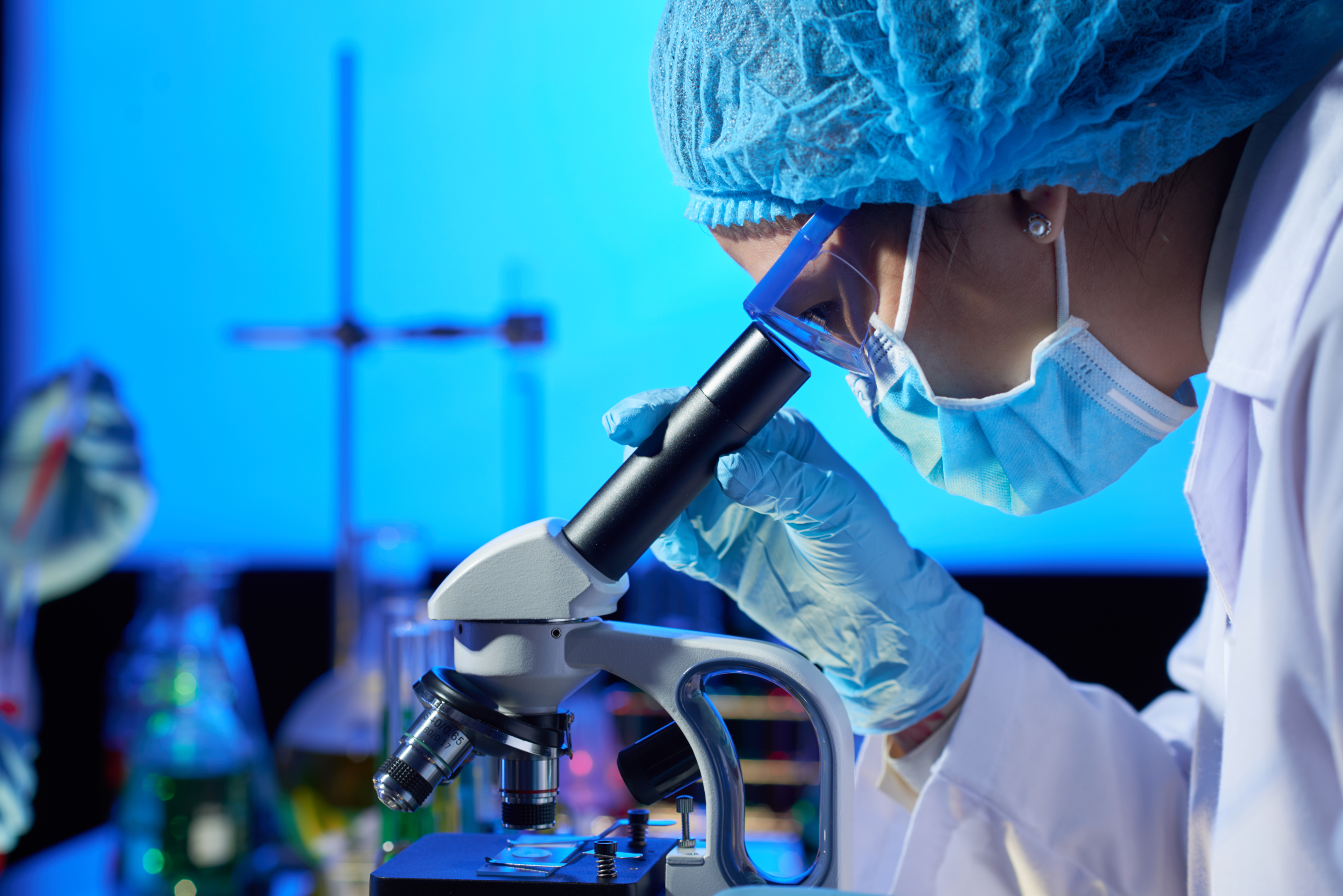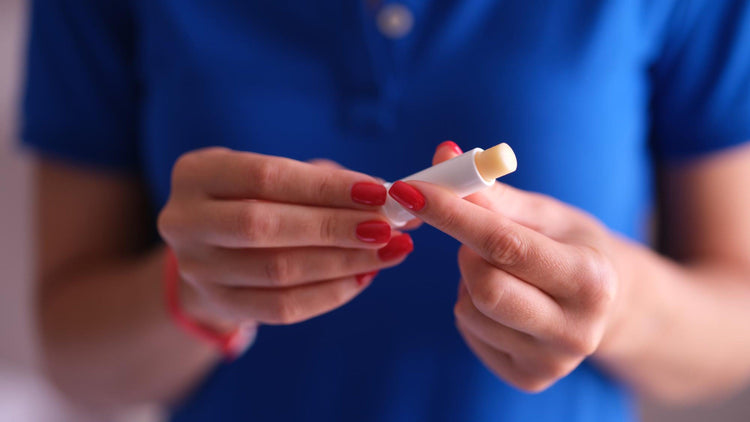Can you get Chlamydia from kissing?
.png?v=1673866324711)

Related products

What is chlamydia?
Chlamydia is a common sexually transmitted infection (STI) caused by a notorious bacteria, Chlamydia trachomatis. The disease affects both genders, both the complications in women can be much more severe as it can result in permanent damage to the female reproductive organs, leading to permanent infertility.
It is among the most common sexually transmitted infections in the UK. According to recent data published by the government, among nearly a million chlamydia tests conducted in 2021 in young adults (15-24 years), 14.8% were positive. The majority of the positive respondents were women.
Is chlamydia transmitted through kissing?
Kissing results in some exchange of body fluids between the partners. The pathogens in the mouth and respiratory airways can be transmitted through it. But can you get Chlamydia from kissing? The answer is a flat 'no.'
If you would like to learn about the cause, spread, diagnosis and treatment of chlamydia, find everything you need to know about a chlamydia infection on our Health Hub.
How do you know if you have chlamydia?
There is something unique about this disease. A person can transmit it to their partner even before developing the clinical signs of the disease. This silent form of the disease is known as 'sub-clinical chlamydia'.
Read our article on how to know if you have chlamydia.

According to the European Centre for Disease Control, 3 out of 4 women can have chlamydia without knowing. The proportion of men is still high at 1 out of 3. It is an alarming situation and is the major risk factor for disease transmission. So, if you are sexually active, you should continue to have regular tests because it can be treated easily if caught earlier.
Both genders develop painful symptoms
Along with the risk of sexual transmission, it causes serious suffering in both genders. Continue to look for these signs of chlamydia.
-
Bleeding in between the menstrual periods in women
-
Swelling and pain in one or both of the testes
-
Anal bleeding or rectal bleeding if you have acquired it through anal sex
-
Soreness and pain around the genitals
-
Unpleasant odour from penis or vagina
-
Abnormal discharge from the vagina or penis
-
Burning sensation during urination
How does it spread?
It is transmitted through oral, vaginal and anal sex. Young people are most affected because they are sexually active and more likely to have unsafe sexual contact. The causative agent is present in the vaginal secretions and the semen. The newborn baby can acquire it as it is present in the uterine secretions.
So, the cervix, vagina and anus are commonly involved. However, the throat and eyes can also be infected during oral sex. It is present in the prepuce and the skin folds, so it is transmitted during sexual activities regardless of ejaculation. The bacteria, however, are host specific and infect humans only.

Keep in mind the following points related to the disease spread;
-
Once you contract chlamydia, it can spread from one body part to the other during showering, etc. There is no way to contain the germs in a single body part.
-
Even if you have a past infection and are treated well for it, you can still get it through new exposure.
-
It can also be transmitted through contaminated sexual toys as the causative agents remain viable for 2-3 hours outside the body in a humid environment unless treated with disinfectants.
-
As it is present in the birth canal, a woman with chlamydia can transfer it to her baby during delivery, causing pneumonia, blindness and otter complications. A treatment course after delivery is required. According to a recent research study published in the Journal of Paediatric Infectious Diseases Society in 2018, about 30-50% of babies born to infected mothers acquire it.
Kissing and sexually transmitted infections
Kissing is sometimes unsafe as it can spread infections. A lot of STIs and other diseases are known to spread through kissing. They include;
STIs are transmitted through kissing.
There are dozens of sexually transmitted infections, but only some are transmitted through kissing. These include;
-
Herpes simplex virus
-
Gonorrhoea (oral sex)
-
Syphilis
-
Cytomegalovirus infection
-
Human papilloma virus.
The causative agents of these diseases reach the saliva and are transferred to your kissing partner. However, kissing is a factor and not the sole cause of disease transmission; you must also practice other safety measures, e.g., avoiding unprotected sex.

Other diseases transmitted through kissing
Besides the STIs, there are a lot of conditions whose causative agents are present in the saliva, and your intimate partner can have it through the kiss. These viruses transmitted through kiss are;
-
Rabies virus
-
Yellow fever virus
-
Zika virus
-
Dengue fever
-
Rubella virus
-
Ebola virus
-
Poliovirus
-
The viruses responsible for meningitis
-
Germs causing periodontal (gum) diseases
-
Influenza,
-
Coronavirus
Chlamydia and kissing
Can you get chlamydia through kissing?
For an infection to be transmitted through kissing, the causative agents should infect the salivary glands and come into the saliva. This is not the case with chlamydia, so there is no risk of acquiring it through kissing. It is, therefore, safe to kiss an infected person.
There is, however, a negligible risk that you can get it during kissing through contaminated wounds on the mouth, but the risk is negligibly small.
What does the research say?
The role of saliva and kissing in transmitting chlamydia was investigated in a study published in the Journal of the International AIDs Society in 2019. It was conducted on homosexual men. It was noted that the use of male condoms was effective in reducing the incidence of chlamydia, as kissing has no role in its transmission.
In contrast to it, male condoms were not effective in the case of gonorrhoea, as the germs are also transferred through kissing.

Another more recent study published by BMC Medicine in 2020 found that kissing doesn't directly cause disease transfer, but oral sex with multiple partners having this disease offers some window of spread.
Protected sex, e.g., male condoms, can reduce the risk of infection. There is also no risk of acquiring it through sharing of utensils (except for sex toys), hugging, holding hands, sneezing, coughing and sharing drinks due to the same reason.
How can you avoid chlamydia?
This bacterial infection is too dangerous to ignore. The useful tips for control are;
-
Regular testing is a good practice for sexually active people to detect any hidden infection.
-
Dental dams (the polyurethane or latex sheets placed between the mouth and vagina during oral sex) and male condoms will also reduce the risk of acquiring it from the partner.
-
The people at particularly high risk are young adults. That's why it is necessary to get proper education about sexual health and STIs, their mechanism of spread, causes and preventive measures to ensure that you are not transferring it to your partner during vaginal or anal sex.

Welzo products for chlamydia and other STIs
Welzo offers various tests for the diagnosis of STIs. Some of these products are home-based, while others require you to send samples to our laboratories.
-
For testing purposes, our Chlamydia Test Kit (Clamella) can be helpful. It works by detecting chlamydia in the samples. The results are submitted instantly. You can have a diagnosis of disease in the privacy of your home. Click here to place an order.
-
We have a similar product that allows you to test chlamydia at home for early treatment. Click here for more information and to place your order.
-
Another of our test kits is an all-in-one STI test which can detect hepatitis B, syphilis, trichomoniasis, HIV, chlamydia and gonorrhoea through a single blood sample. All it needs is a blood sample from a single finger prick. Click here for more information and to place an order.
Learn more about the most common STIs at Welzo.
What are the complications of a chlamydia infection?
Leaving chlamydia untreated can lead to many potentially dangerous complications. These complications must be identified as soon as possible and treated immediately. These complications depend upon whether you are male or female and include;
For women
The disease and its complications are more severe for women. These include;
-
Pelvic inflammatory disease (PID) leads to infertility and chronic pain in the pelvic region
-
Premature delivery or stillbirth
-
Ectopic pregnancy is when the embryo grows outside the womb, leading to potentially fatal complications.
For men
-
Inflammation of the rectum (proctitis)
-
Epididymitis is an inflammation of the epididymis, the tube which carries the sperms from the testes and also stores them. It will result in swelling and pain in the taste.
-
Urethritis (nongonococcal), a urethral infection leading to abnormal discharge, frequent and painful urination etc.
Safe kissing tips
Although you have no risk of getting chlamydia through kissing, safe kissing is still very good for your overall health.

The following tips can help you to avoid any more diseases.
-
Don't bite your partner's lips as chlamydia can be present in the mouth sores, and the blood spill can cause disease transmission. Chlamydia is, however, not classified as a blood born disease.
-
Avoid kissing when you or your partner are sick.
-
Avoid kissing if you or your partner have an injured mouth, lips, or sores.
Bottom-line
In the case of chlamydia, there are no infections of salivary glands and saliva ducts, so there is no proof of transmission through kissing. However, it is a potentially severe infection and needs to be treated as soon as possible. Keep an eye on the signs of disease and undergo regular blood tests to prevent sub-clinical infection.

The opinion and guidelines of healthcare providers should always be prioritised. At Welzo.com, we have a lot of medicines related to the treatment of chlamydia. You can get these products after proper diagnosis and consultation with our health professionals. Click here to view the products and consult the Welzo health professionals.

























 Rated Excellent by 26,523+ Reviews
Rated Excellent by 26,523+ Reviews